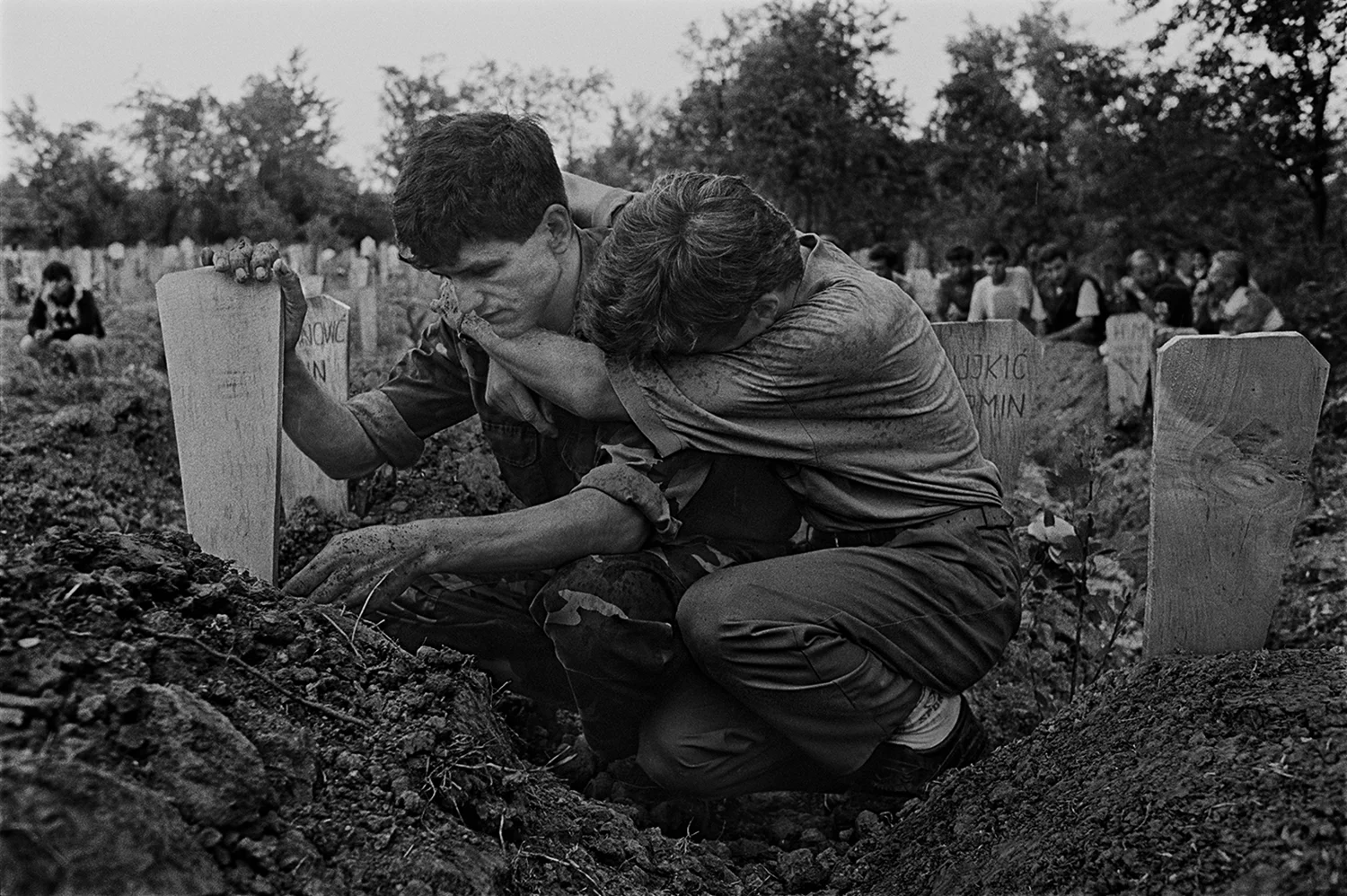We photographers make magnificent shots of wars, fires, earthquakes, and murder: the grief of humanity. We would like to see photographs about joy, happiness and love, but on the same level. I realize, though, that this is difficult.
Dmitri Baltermants
The idea of a transcendent brotherhood, or that of a connection or bond persisting beyond geography, time, and even life, is evident within the interviewed veterans’ discussions. US Navy Russian Linguist and Reservist Allyssa Austin, especially, discusses the kinship she feels when performing funeral rites for other navy soldiers or veterans who have died. While each culture has different conceptions and notions surrounding death, many common practices among soldiers transcend nationality.
For example, Jim Nachtwey’s photograph from Serbia shows that Serbian soldiers made an effort to identify the remains of every fallen comrade and to provide each body with its own burial and grave marker. American soldiers will often enter potentially dangerous zones in order to recover the bodies of the dead. This suggests a strong belief that the dead body still retains some element of the individual and therefore must be honored and respected. In addition, the commitment to honor the dead could result from a type of social contract implicit within the bonds of brotherhood. Even in death the shared responsibility of these soldiers to protect, support, and defend each other remains.




